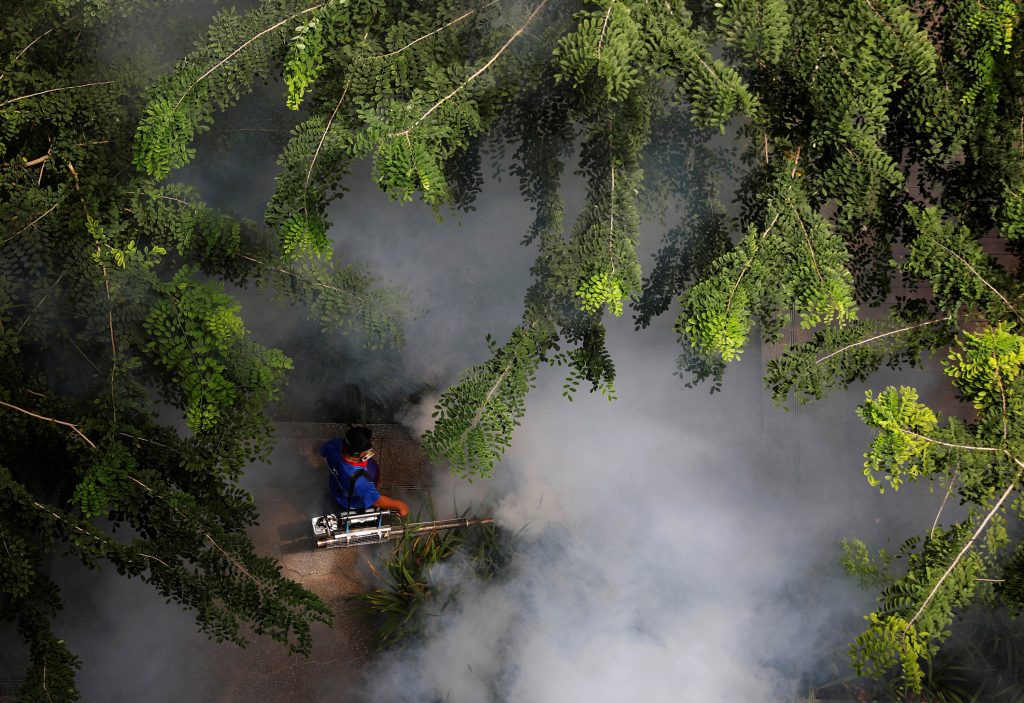Singapore’s dengue ’emergency’ is a climate change omen for the world

The Southeast Asian city-state has already exceeded 11,000 cases — far beyond the 5,258 it reported throughout 2021 — and that was before June 1, when its peak dengue season traditionally begins. Experts are warning that it’s a grim figure not only for Singapore — whose tropical climate is a natural breeding ground for the Aedes mosquitoes that carry the virus — but also for the rest of the world. That’s because changes in the global climate mean such outbreaks are likely to become more common and widespread in the coming years.Dengue is not a pleasant disease. It causes But with peak season only just beginning, medical experts and doctors like Clarence Yeo Sze Kin say there’s a chance this year could set a record for the number of cases.”Dengue is a seasonal disease and once it gets hot and dry, I usually start seeing more patients coming in,” he said. Yeo who runs a clinic in downtown Singapore, has been seeing “a sharp rise” in the number of patients with dengue-related ailments.”Dengue might be endemic but it is still by no means a simple illness to treat,” Yeo added. The ministry spokesperson said most dengue cases did not require hospitalization or intensive care, “However, some individuals may develop severe dengue that can result in death.””We remind the medical community of the appropriate clinical management of dengue cases and to maintain a high level of clinical suspicion when seeing patients with fever.” Hotter days, warmer nightsSingapore’s dengue surge is the result of multiple factors like the recent warm, wet weather as well as a new dominant virus strain, said Ruklanthi de Alwis, a senior research fellow at the Duke-NUS Medical School and an expert in emerging infectious diseases.But climate change, she said, was likely to make things worse. “Past predictive modeling studies have shown that global warming due to climate change will eventually expand the geographical areas (in which mosquitoes thrive) as well as the length of dengue transmission seasons,” de Alwis said.The Meteorological Service Singapore says that the Southeast Asian country is Despite spending tens of millions of dollars each year trying to keep mosquito populations down through island-wide fogging efforts, public awareness campaigns and even novel experiments using special lab-bred mosquitoes, government agencies in Singapore are continuing to report rises in dengue infections and mosquito clusters. “Singapore is currently facing a serious dengue situation,” its National Environmental Agency told CNN, citing the “recent warm, rainy and humid weather” as a big contributing factor to the surge. Dengue cases continue to rise sharply and are expected to remain high in the months ahead, the agency added. While the government agency has managed to stamp out large areas of clusters and made extensive efforts to control the mosquito population, it is still seeing “profuse mosquito breeding” in many areas. “Quick detection and removal of mosquito breeding habitats are crucial in reducing the mosquito vector population,” the agency said. “We urge all residents to stay vigilant, and to check their homes thoroughly at least once a week for any stagnant water.” Here to stayAs climate change worsens and the planet heats up, mosquito-borne diseases like Zika, chikungunya and dengue will likely continue to spread and have an ever greater impact on human health and well being. The important question now, experts say, is whether politicians and policy-makers — the ones who will need to make the changes to slow climate change and prepare for its consequences — will see the impact of mosquito-borne diseases on human health and act. “Changing environmental conditions are magnifying mosquito breeding rates so unless the climate emergency improves, it will become even more difficult to eliminate the risk of dengue fever altogether,” said Chow the climate scientist. “And it will be a painful battle for Singapore in the long run.”






